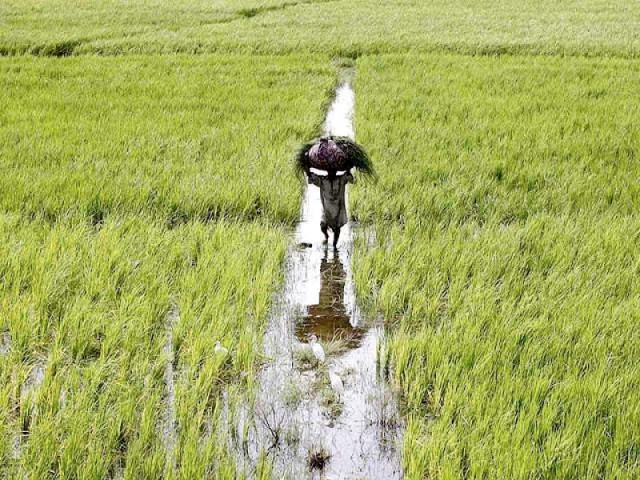Experts warn of impending food crisis
Highlight risks of climate change at Pak-Korea nutrition conference

Food and agricultural experts have stressed that failing to take appropriate initiatives could severely impact the future generations of the country due to rising food shortages and malnutrition resulting from various factors. They highlighted that Pakistan is facing numerous challenges regarding food insecurity and malnutrition, which stem from issues such as poverty, limited access to clean water, inadequate infrastructure, and climate change-induced disasters like floods, torrential rains, and droughts. The experts suggested that the government should make comprehensive efforts to address these challenges by improving agricultural practices, investing in infrastructure, enhancing social safety nets, and promoting sustainable development initiatives.
These discussions took place during a two-day Pakistan-Korea Nutrition Centre (PKNC) conference on food nutrition and public health held at the main auditorium hall of Sindh Agriculture University (SAU) on Tuesday. The event was organised by SAU’s Institute of Food Sciences and Technology in collaboration with the Korea International Cooperation Agency Pakistan and the University of Agriculture Faisalabad.
Experts underscored the need to control post-harvest losses by implementing various measures, including improving infrastructure for storage and transportation, promoting modern harvesting techniques, educating farmers on proper handling and storage practices, implementing effective pest control measures, encouraging the use of appropriate packaging materials, and investing in technology for monitoring and managing post-harvest processes. They also highlighted the importance of establishing cold chain facilities and promoting value addition through food processing to reduce losses and improve the efficiency of the agricultural supply chain.
Dr Kim Jae Han, Programme Manager of Pakistan-Korea Nutrition Centre, advocated for increased attention to agricultural production and rural health. He delivered a presentation on the significance of nutrition and health education programmes at universities.
Read Global collaboration for food security stressed
Sindh Agriculture Research Director General Noor Muhammad Baloch highlighted the need to reclaim 8 million hectares of uncultivated land for agriculture and to train rural women in kitchen gardening.
SAU VC Professor Dr Fateh Marri highlighted that 45% of children under five years of age in Pakistan are affected by food shortages, with over 32% being underweight for their age and 15% suffering from severe malnutrition. He stressed the need for collaboration among scientific institutions, experts, and stakeholders to ensure food security.
“Climate change has had negative effects on agricultural production and its quality, which also pose major risks to food security,” he added.
Sindh Food Authority Director General (DG) Agha Fakhar Hussain stressed the importance of addressing health hazards associated with harmful food and announced the expansion of the food business monitoring system. Moreover, initiatives such as chemical analysis and microbiology laboratories are in progress, along with training and internship programmes for university graduates to play a role in local communities.
SAU Institute of Food Sciences and Technology Director Professor Dr Aijaz Hussain Soomro said factors of climate change, including more rains, sudden floods, and water shortages, have been taking a heavy toll on food security in the country.
University of Agriculture Faisalabad Dean Dr Masood Sadiq Butt highlighted the benefits of food processing, value addition, food composition, maternal and child health, and education.
Published in The Express Tribune, February 21st, 2024.
Like Business on Facebook, follow @TribuneBiz on Twitter to stay informed and join in the conversation.



















COMMENTS
Comments are moderated and generally will be posted if they are on-topic and not abusive.
For more information, please see our Comments FAQ